Turkey Is Putinising
Adelina Marini, August 12, 2014
 The news that Recep Tayyip Erdogan has been elected president of Turkey at the first direct elections for head of state is not a surprise. The reaction of the EU and some member states, however, is. Although there is already enough proof that Erdogan is putinising his power, the EU came up with a cautious warning on the occasion of his election, while German Chancellor Angela Merkel sent a very warm congratulation. By the time of writing of this article in Bulgarian there were no official reactions from France, which is one of the biggest opponents of Turkey's EU accession neither from Italy which currently holds the rotating presidency of the EU. The reaction from Bulgaria also came late, despite the solid Turkish minority in the country and the traditionally controversial relations between the two countries. Later in the day [11 August], both President Francois Hollande of France and President Rossen Plevneliev of Bulgaria congratulated Erdogan. The latter wholeheartedly.
The news that Recep Tayyip Erdogan has been elected president of Turkey at the first direct elections for head of state is not a surprise. The reaction of the EU and some member states, however, is. Although there is already enough proof that Erdogan is putinising his power, the EU came up with a cautious warning on the occasion of his election, while German Chancellor Angela Merkel sent a very warm congratulation. By the time of writing of this article in Bulgarian there were no official reactions from France, which is one of the biggest opponents of Turkey's EU accession neither from Italy which currently holds the rotating presidency of the EU. The reaction from Bulgaria also came late, despite the solid Turkish minority in the country and the traditionally controversial relations between the two countries. Later in the day [11 August], both President Francois Hollande of France and President Rossen Plevneliev of Bulgaria congratulated Erdogan. The latter wholeheartedly.
Naturally, midday Monday was still early, but the fact that some countries came out late with reactions is quite telling about the lack of a clear position what Turkey is and how the EU should continue its relationship with it. That is why, it will be very important the Union to gather together as fast as possible to take account of the situation and to consolidate its position. This should happen right after the final formation of the Commission and the appointment of successors of Catherine Ashton and Herman Van Rompuy.
Sultan Erdogan
To many media, especially in the Western Balkans, the victory of the Turkish prime minister, who has ruled for 12 years, is a sufficient reason to call him "uncrowned sultan" or the "Sultan of Ankara", as Corriere della Sera called him because of Recep Tayyip Erdogan's clearly stated desire to rule as long as he can. "Today is a new day, a milestone for Turkey, the birthday of Turkey, of its rebirth from the ashes", said the 60-year old Erdogan before thousands of supporters in Ankara on Sunday evening, right after it became clear he has the support of a little over 51% of the votes. He also announced his intention to use his constitutional powers to the maximum as well as to work for a change of the Constitution to create a presidential republic. This will allow him to rule for another 10 years (2 5-year terms). The scenario Erdogan is plotting is strikingly similar to the democratic coup Vladimir Putin did.
After two consecutive terms as president, Putin made constitutional changes which allowed him to stand, after a break, for a third presidential term. After 4 years as prime minister, Vladimir Putin returned in the Kremlin with the intention to rule as long as he can. The only thing Erdogan lacks is a Medvedev of his own. The problem is, however, that unlike Russia, Turkey is a candidate country and is negotiating for EU accession. This is precisely what European Commission chief Jose Manuel Barroso and European Council President Herman Van Rompuy reminded him in their short and very cautious joint statement. They also reminded him that Turkey is a key EU partner, a neighbour, an important trade partner and a foreign policy ally.
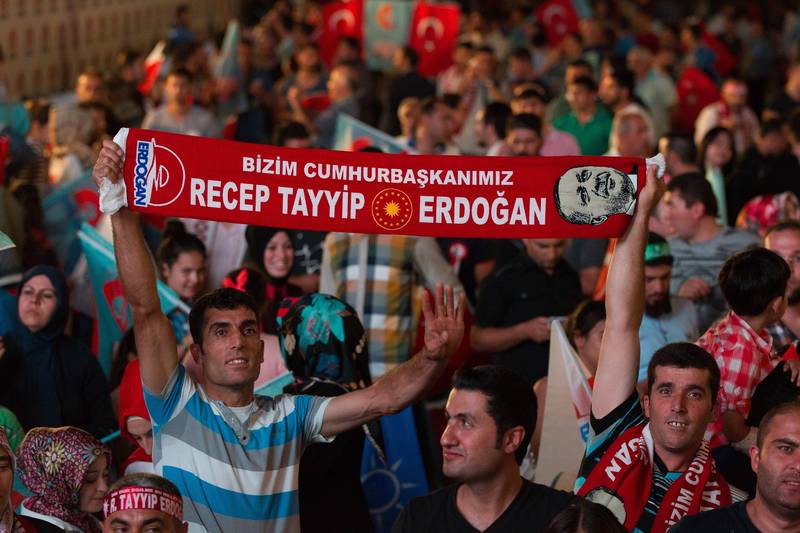 "As you rightly underlined yourself, we trust you will maintain the conciliatory role which your new position involves, and strive to encompass all communities, beliefs, sensitivities, opinions and lifestyles of the Turkish society", reads the statement. Erdogan himself promised that he will be a president of everyone, even of those who do not like him. It is a fact, however, that Turkey has become quite authoritarian during Erdogan's rule and there are no perspectives this to change. On 10 August he won over democracy. Although he got lower support than the pollster agencies predicted, his victory is indisputable against the backdrop of the millions who protested last year against his totalitarian rule. Protests which Erdogan crushed with force. His Sunday results had become possible thanks to the active persecution of different opinion, of media, journalists, bloggers. He tried and failed to restrict Twitter and You Tube, but nonetheless his election victory was ensured precisely by the lack of a strong opposition, pluralism of opinion and thanks to the monopolistic political situation.
"As you rightly underlined yourself, we trust you will maintain the conciliatory role which your new position involves, and strive to encompass all communities, beliefs, sensitivities, opinions and lifestyles of the Turkish society", reads the statement. Erdogan himself promised that he will be a president of everyone, even of those who do not like him. It is a fact, however, that Turkey has become quite authoritarian during Erdogan's rule and there are no perspectives this to change. On 10 August he won over democracy. Although he got lower support than the pollster agencies predicted, his victory is indisputable against the backdrop of the millions who protested last year against his totalitarian rule. Protests which Erdogan crushed with force. His Sunday results had become possible thanks to the active persecution of different opinion, of media, journalists, bloggers. He tried and failed to restrict Twitter and You Tube, but nonetheless his election victory was ensured precisely by the lack of a strong opposition, pluralism of opinion and thanks to the monopolistic political situation.
This is a huge challenge for the EU which is built upon a set of values that is obvious Erdogan and his voters do not share. That is why, it is high time the Union to make a thorough review of its relations with Turkey because Erdogan's victory shows that Turkey's integration in the EU is growingly unrealistic. During this year's Croatia Forum in Dubrovnik, dedicated on the Western Balkans' European integration, the concept of integration has emerged as a much more appropriate approach than enlargement which is much more general and obviously not successful. Integration means adopting the European system of values and democratic order. To many Turkish voters, however, these values are not important. Citizens who were cited by international media, say Erdogan had completely changed Turkey to the better. Obviously, economic prosperity is sufficient to make them give up many rights and liberties which, anyway, find it hard to sprout in Turkish soil to the terror of pro-European forces who expect to turn into immigrants in their own country or even into dissidents. Some of them fear that Turkey is moving toward a one-party and one-man rule.
A new Commission, a new start!
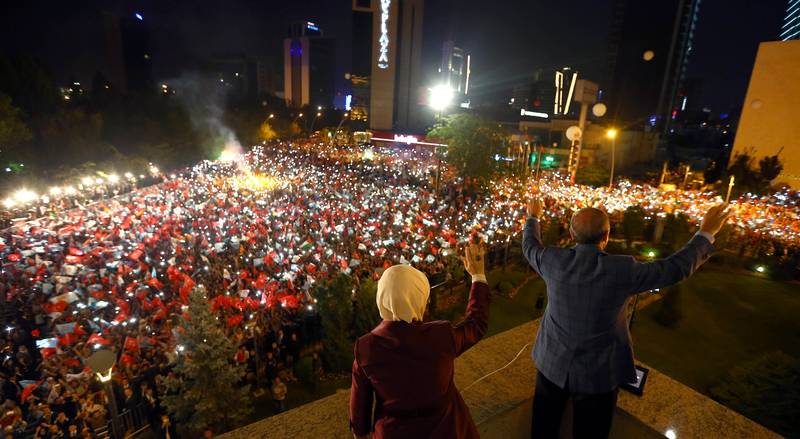 The challenges the EU is facing are now completely clear. To the east, Putin is radicalising and seems ready for the worst-case scenario. The Middle East is growingly instable. Erdogan is preparing to solidify his dictatorship. All these foreign policy challenges demand an urgent summit dedicated precisely to these three major foreign policy priorities. This summit should answer clearly the following questions: What are we doing with Turkey? What are we doing with Russia? What are we doing with enlargement, specifically to the Western Balkans? These questions are more than urgent in the current geopolitical situation and should not be delayed. Vladimir Putin's total refusal to acknowledge his wrong-doings in Ukraine, Recep Tayyip Erdogan's victory at the first direct elections in Turkey and the clear interests of these two parties in the Western Balkans show that the EU's current policies toward all of them have been exhausted.
The challenges the EU is facing are now completely clear. To the east, Putin is radicalising and seems ready for the worst-case scenario. The Middle East is growingly instable. Erdogan is preparing to solidify his dictatorship. All these foreign policy challenges demand an urgent summit dedicated precisely to these three major foreign policy priorities. This summit should answer clearly the following questions: What are we doing with Turkey? What are we doing with Russia? What are we doing with enlargement, specifically to the Western Balkans? These questions are more than urgent in the current geopolitical situation and should not be delayed. Vladimir Putin's total refusal to acknowledge his wrong-doings in Ukraine, Recep Tayyip Erdogan's victory at the first direct elections in Turkey and the clear interests of these two parties in the Western Balkans show that the EU's current policies toward all of them have been exhausted.
The statements of the Turkish prime minister about EU countries or the Western Balkans often were ill-measured and caused sharp reactions and fear. The latest example is from mid-July when he was quoted saying, during an election rally, that Turkey would undertake actions if the Bosniaks (the Muslims in Bosnia and Herzegovina) are endangered in any way. Serbia reacted sharply and is regularly complaining of excessive influence of Turkey in Bosnia and Herzegovina. However, Russia, too, has significant influence in the region and Russian Deputy Foreign Minister Alexei Meshkov made it clear in Dubrovnik in mid-July that the Western Balkans are an area of influence to Russia that Moscow has no intention to give up on. All this means that the EU should not view these cases as not interlinked.
At such a summit, the EU should draw a clear programme of actions aimed at the three foreign policy subjects. Regarding Turkey, it is of utmost importance to finally raise the question whether Turkey can ever become a EU member and under what conditions. If the Union fails to react adequately in the autumn it risks losing entirely its already weakened foreign policy weight. In an interview for one of the most circulating Croatian dailies, Jutarnji list, Russia's ambassador in Zagreb Robert Markaryan said 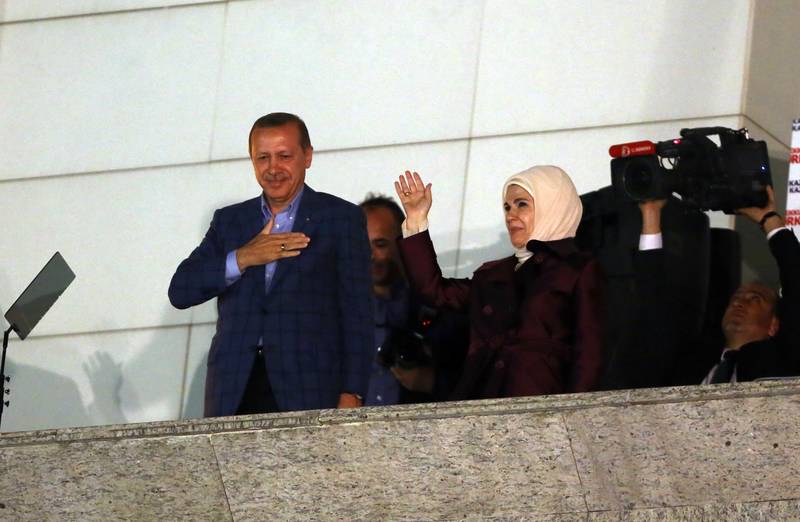 that Moscow was disappointed of EU's incapability to play an independent role in international affairs. He blamed the Union that it is a pawn in the hands of the US and its "unsuccessful geopolitical schemes".
that Moscow was disappointed of EU's incapability to play an independent role in international affairs. He blamed the Union that it is a pawn in the hands of the US and its "unsuccessful geopolitical schemes".
The EU is more and more under pressure by growingly powerful dictatorships in its neighbourhood and seems incapable to react accordingly to the new challenges. That is why, it will be crucial who will the leaders pick on 3 August to succeed Catherine Ashton and Herman Van Rompuy. This will be a clear sign about whether the EU intends to return as a strong player on international stage or will it choose business as usual. There is still time the EU to act wisely, although Angela Merkel's greeting address [in German] to Erdogan is eloquent. In it, she recalls that Germany and Turkey have a close partnership, based on mutual trust. To her, it is essential the two countries to continue "the traditionally friendly relationship". "Currently, we have to deal with difficult challenges in the region. Turkey is of great significance". Such a statement is not suitable for a country that is negotiating for EU membership with Erdogan's track record, containing tens of serious violations of the European values. Instead, it is much more suitable for a partner or a neighbour. The EU should finally decide for itself which one is Turkey and to start a painful process of adapting to the new realities.
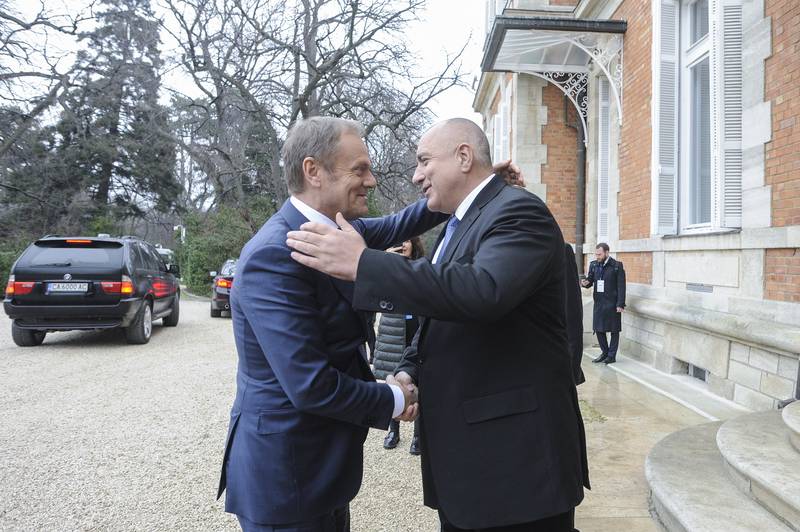 Donald Tusk, Boyko Borissov | © Council of the EU
Donald Tusk, Boyko Borissov | © Council of the EU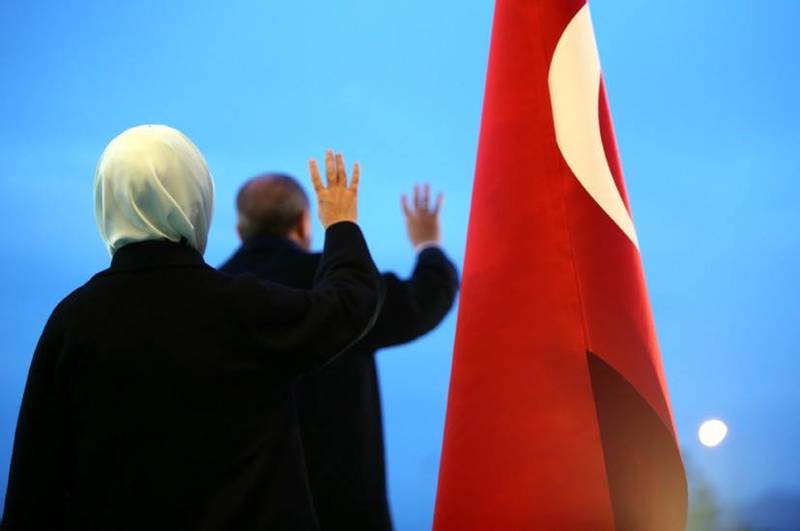 | © Turkey Presidency
| © Turkey Presidency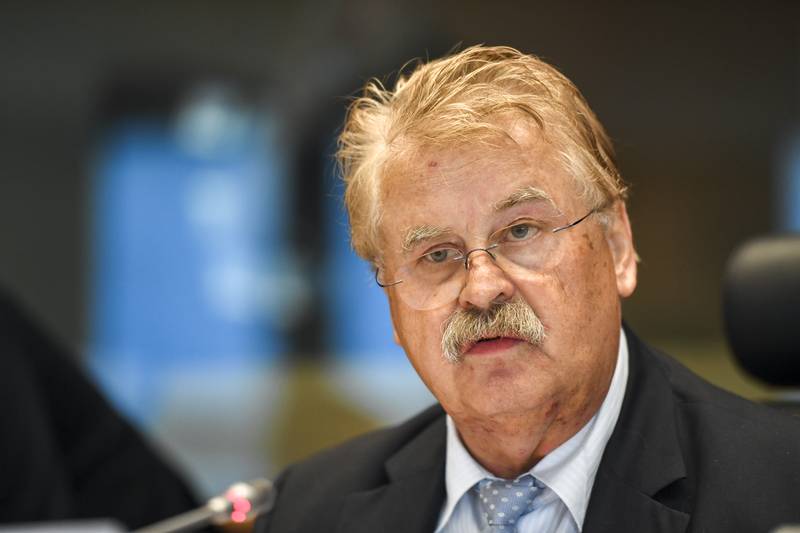 Elmar Brok | © European Parliament
Elmar Brok | © European Parliament